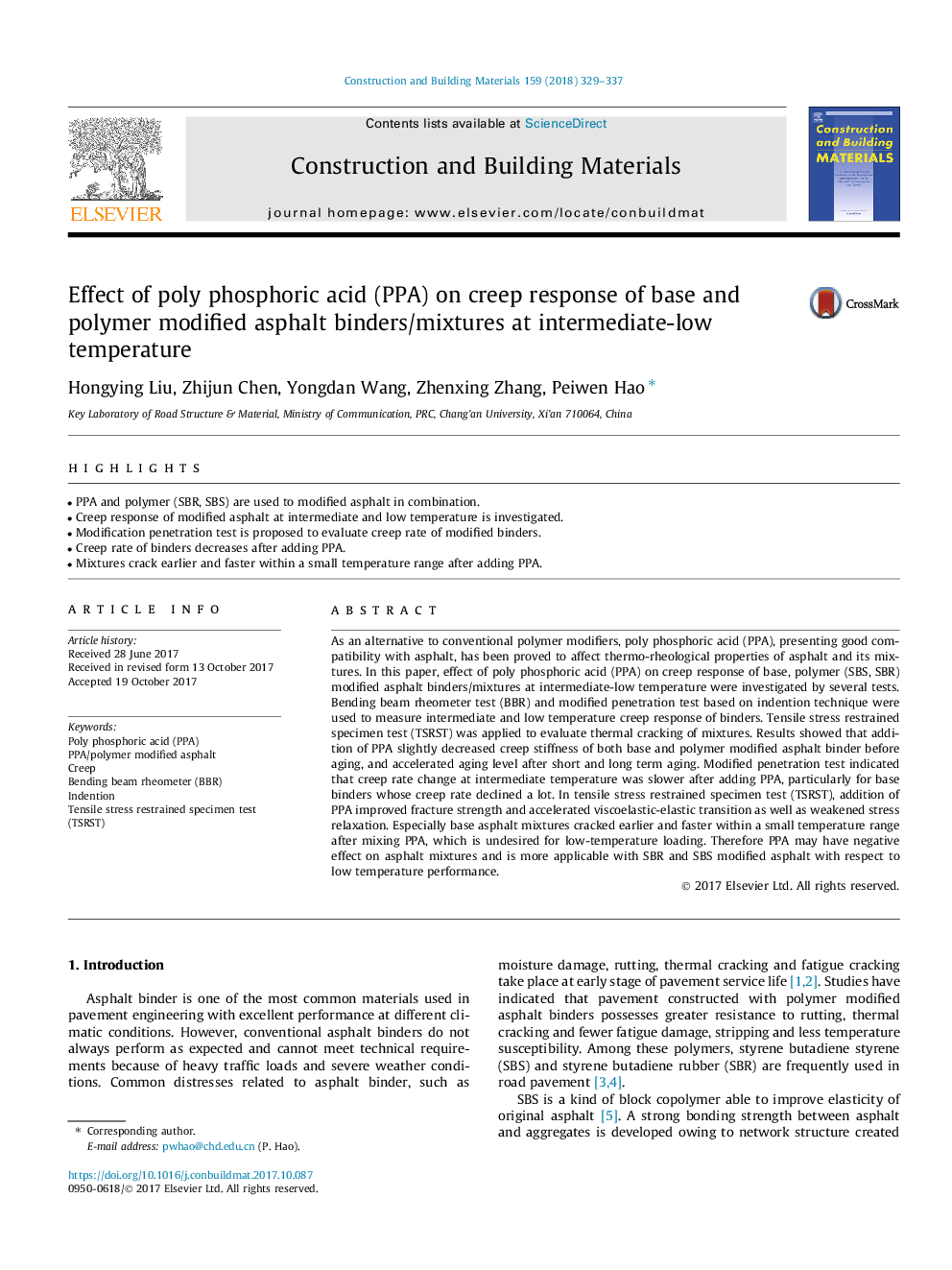| Article ID | Journal | Published Year | Pages | File Type |
|---|---|---|---|---|
| 6717399 | Construction and Building Materials | 2018 | 9 Pages |
Abstract
As an alternative to conventional polymer modifiers, poly phosphoric acid (PPA), presenting good compatibility with asphalt, has been proved to affect thermo-rheological properties of asphalt and its mixtures. In this paper, effect of poly phosphoric acid (PPA) on creep response of base, polymer (SBS, SBR) modified asphalt binders/mixtures at intermediate-low temperature were investigated by several tests. Bending beam rheometer test (BBR) and modified penetration test based on indention technique were used to measure intermediate and low temperature creep response of binders. Tensile stress restrained specimen test (TSRST) was applied to evaluate thermal cracking of mixtures. Results showed that addition of PPA slightly decreased creep stiffness of both base and polymer modified asphalt binder before aging, and accelerated aging level after short and long term aging. Modified penetration test indicated that creep rate change at intermediate temperature was slower after adding PPA, particularly for base binders whose creep rate declined a lot. In tensile stress restrained specimen test (TSRST), addition of PPA improved fracture strength and accelerated viscoelastic-elastic transition as well as weakened stress relaxation. Especially base asphalt mixtures cracked earlier and faster within a small temperature range after mixing PPA, which is undesired for low-temperature loading. Therefore PPA may have negative effect on asphalt mixtures and is more applicable with SBR and SBS modified asphalt with respect to low temperature performance.
Keywords
Related Topics
Physical Sciences and Engineering
Engineering
Civil and Structural Engineering
Authors
Hongying Liu, Zhijun Chen, Yongdan Wang, Zhenxing Zhang, Peiwen Hao,
